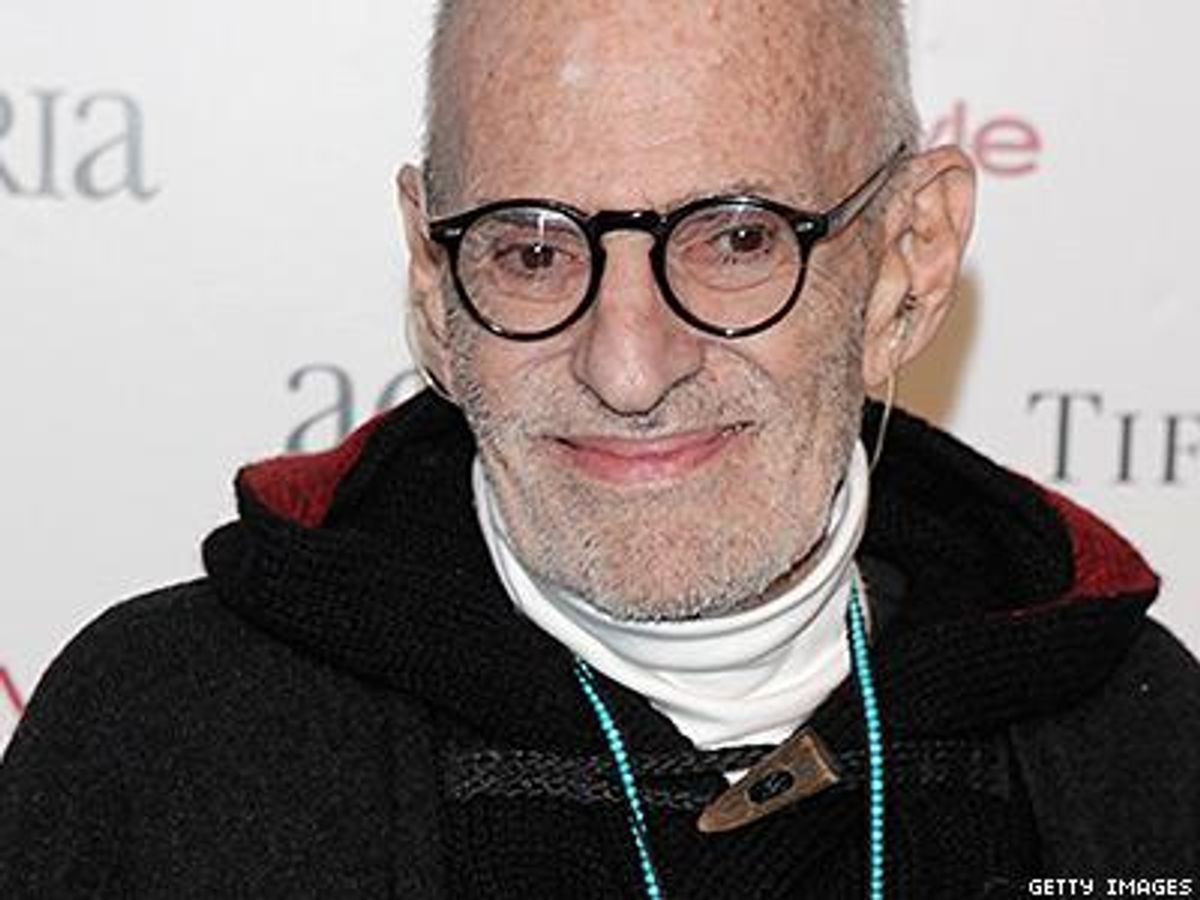In 1983 Larry Kramer, one of the founders of Gay Men’s Health Crisis, was kicked out of the organization he helped create, due to his loud and often controversial methods of raising public awareness about the AIDS epidemic.
Now, over 30 years later, The Normal Heart writer is being honored by that very same group at its upcoming Spring Gala, a move that has generated its own noise within the spheres of HIV and AIDS activism as well as the greater LGBT community.
And the noise has been predominantly joyful. “Amazing,” “wonderful,” “great,” and “smart” are just a few of the superlatives Kelsey Louie, the present-day CEO of GMHC, has heard since the announcement of Kramer’s upcoming honor at the fundraiser.
“People are asking how they can support,” he says with enthusiasm. “There’s a lot of groups that are really interested in coming. They want to hear what he has to say.”
Kramer, 79, was one of the six founders of GMHC, which was started in 1982 in response to the AIDS crisis in New York. What began as a meeting in his living room grew into one of the nation’s first and foremost organizations in providing HIV services like counseling, care, and advocacy. Today, it serves more than 9,000 clients each year.
“Without Larry Kramer and our founders, there would be no GMHC,” Kelsey says. The founders’ “activism, their relentlessness in the face of a terrifying, unknown disease saved countless lives. Mr. Kramer’s impact is very hard to measure, because it’s so profound and so far-reaching.”
The horrors of the organization’s early years — ignorance about what caused the virus, coupled with rising death tolls in the gay community and government inaction — were captured in The Normal Heart, a play written by Kramer that was adapted into an award-winning HBO film last year, starring A-listers like Julia Roberts, Mark Ruffalo, and Matt Bomer.
The star power has helped shine a new spotlight on HIV and AIDS, which is one of the reasons Kramer is being honored by GMHC this year. Another reason is healing, in every sense of the word.
“One of our goals is to bring a sense of closure and healing to many of the events that had occurred before,” Kelsey says. “It was a period of devastation and panic. Gay men were dying every day. And I think that it’s time we recognize the debt that we owe to Mr. Kramer for doing what he did for all of us.”
“It might be a sense of closure and healing for the community, not just Larry Kramer and GMHC,” he adds.
Since The Normal Heart’s release as a play in 1985, Kramer has acknowledged that the characters in the drama were based on real-life people involved with the founding of GMHC, including former president and fellow founder Paul Popham, who inspired the character of Bruce Niles. Like his real-world counterpart, Niles often clashed with the more confrontational character of Ned Weeks (a veiled Larry Kramer), who favored direct action over the more cautious leadership tactics of Niles.
The in-fighting within the play does not always shine the most favorable light on the HIV organization, which could read as a lightly fictionalized GMHC. But Kelsey plays down the parallels. He “loves” the play for its ability to educate new generations about the past, as well its relevance about HIV and AIDS even in present day.
“It wasn’t designed to be a historical document,” he says. “It depicts the times accurately, where there was a lot of fear and panic around HIV and AIDS. It highlights the need that existed then and today, and the role that GMHC played then and today, which is providing accurate information and education around sexual health and HIV and AIDS.”
Though there are still points of contention between Kramer and GMHC in present day. The founder recently spoke out against PrEP, a daily treatment also known by the drug name Truvada that can be used to prevent HIV infection. GMHC has endorsed its use as part of a multi-pronged plan helmed by Gov. Cuomo to end HIV and AIDS in New York by 2020.
“There’s something to me cowardly about taking Truvada instead of using a condom,” Kramer told The New York Times last year.“You’re taking a drug that is poison to you, and it has lessened your energy to fight, to get involved, to do anything.”
While Kelsey acknowledges that PrEP is not a “silver bullet,” GMHC strives to educate the public about it. Used with condoms, “it’s another tool in the tool box to prevent HIV infections,” he says. Studies show that, if taken daily, the treatment is up to 99 percent effective in preventing HIV.
Could Kramer change his opinion about PrEP? “No. No. No,” Kelsey repeats, though he says he had a recent “pleasant conversation” with Kramer about the issue. He assures HIV Plus that this difference of opinion “won’t impact our relationship,” and hopes to work with Kramer on future projects.
Kelsey, who formerly served as COO Harlem United Community AIDS Center, was hired last year in a period of difficulty for GMHC, which was suffering from financial struggles and spent months searching for a new CEO. Mending the relationship between Kramer and the organization is one of the first major publicity moves of his tenure, and it represents on a macro level his desire to learn from the past while looking toward the future.
“Whenever you make plans for an organization going forward, you need to look at its history,” Kelsey says. “To understand where you’re going, you need to understand where it’s been.”
“It’s hard to understand where the fight against HIV/AIDS would be without Larry Kramer,” he continues. “We saw what an opportunity it would be to do so this year… as there is a sense of renewal in the fight against HIV/AIDS, as well as a renewal at GMHC.”
Kelsey’s appointment to the head of GMHC represents its own renewal in the world of HIV activism. As an Asian American, he brings a different face than one the public usually associated with the fight against the virus, which he hopes will steer the conversation toward the high risks associated with men of color.
For example, the CDC reports that black gay and bisexual men ages 13 to 24 had twice as many new HIV infections as white or Hispanic gay and bisexual men of the same age group in 2010.
“One of the things that we talk about in terms of HIV infection and AIDS is the disproportionate impact of HIV on different groups, especially minorities,” he says. “I’m hoping that I can serve as a reminder that we need to look at all populations and understand that there are different interventions that work with different groups.”
And he has his work cut out for him. In addition to employing strategies toward testing and treatment, Kelsey plans to put pressure on government agencies like the National Institutes of Health to develop a cure or vaccine.
Kelsey points out that the world has been battling HIV for nearly 35 years. With Kramer-esque resolve, he says the inability to find a cure or vaccine in that time period is “unacceptable.”
“While we acknowledge the hard work of many to get us to this point, we have to address the fact that we still don’t have a cure or a vaccine," he concludes. “Because it was advocates like Larry Kramer who taught us that silence equals death.”
The GMHC Spring Gala will be held March 23 at Cipriani on 42nd Street in New York. For more information, visit GMHC.org.
















































































